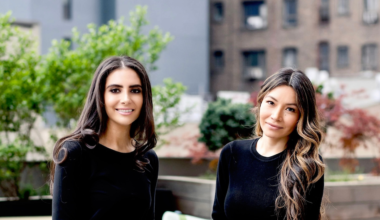I started using LinkedIn as a sophomore at the University of Miami. The task was simple. I was asked to add a profile picture, upload my resume, and share one post.
My post was about my story: growing up in Germany and moving by myself (at 18 years old) to the U.S. to pursue my dream of entrepreneurship.
I received an ‘A’ for it and was happy. Then, I didn’t touch LinkedIn again until I saw this comment on my post:
“Hey Skylar, I’m also an immigrant who moved from Germany to the U.S. and started a business here!”
I didn’t even know this person existed before. This stranger later became my mentor and friend. My LinkedIn posts eventually created a community for myself as a lonely expat, something that I didn’t even realize was possible.
While this is probably the most important mistake to avoid, there are 4 more mistakes that I’ve experienced as an expat in the U.S.
- Thinking your story isn’t worth sharing
Everyone has a story to tell, especially if you’re an immigrant, a founder, or both. Just sit down and ask yourself, “What parts of my journey would have helped me if I’d known them before?”
4 stories you can share as an immigrant founder:
- How did you create a community in a new country?
- How can you speed up your language learning?
- What tools can help create a company in a new country?
- Why is moving abroad challenging but rewarding?
- Too afraid to try voice or video content
Oftentimes, immigrants want to hide or change their accents. However, I believe your accent will always accompany you, not as a burden, but as an asset that makes you unique (yes, even my German one!). Thus, it’s not something that should prevent you from sharing spoken content online. (My first LinkedIn video was awful, but that’s how you learn).
- Stuck in your “native bubble”
While it’s great to have a community that shares a similar background, you need to get out of your comfort zone to grow and learn. The same goes for your LinkedIn activity.
Other similarities to look for in people besides their nationality:
- Similar educational background
- Similar industry niche
- Similar work experience
- Similar or mutual connections
- Believing you don’t have much to offer
Networking often is a give-and-take. However, I strongly suggest everyone to go at it with a giving attitude. Of course, everything has its limits, but it’s key to be known as a person who shares value. Being an expat in a different country and seeing people around you accomplish things you didn’t even know existed can be scary. It leads many of us to feel as if there’s little they can offer.
But there’s tons you can offer (as an immigrant founder):
- Introductions to anyone in your network
- Your time to listen or brainstorm
- An international perspective on most issues
- Your story of conquering the “uncomfortable,” a.k.a. being an immigrant founder
- Not wanting to share posts because it’s “bragging”
Especially outside the U.S., LinkedIn is often seen as a platform for bragging.
When I started one of my first internships, I announced it on LinkedIn. It was with a Fortune 100 company with 200k+ employees. However, back in Germany the reception to my post was not so warm. One morning in the office, I heard our branch director crack jokes about my LinkedIn posts.
However, I quickly realized this person didn’t understand LinkedIn, compounded by the fact that many Germans see personal brands as something weird.
Benefits of posting outweigh the negatives tenfold:
- Meeting new friends/mentors
- Acquiring more business
- Becoming a thought leader in your niche
- Finding investors and supporters
- Motivating others with your story
- There’s much more!
In the end, we all create a personal brand, to some extent. Life as an immigrant founder gives us a unique perspective, story, and network to make the most of our brand.
So, it’s on us to become more visible, to step out of our comfort zone, and start posting!
About the author:
Skylar Steudter guides businesses in crafting their LinkedIn presence. He is a founder at Believe It Today, a consulting firm helping businesses and individuals reach millions of views through online branding. Skylar draws on his background as a LinkedIn corporate top performer and expertise in building successful brands. If you are interested in amplifying your presence on LinkedIn, reach out to him HERE








